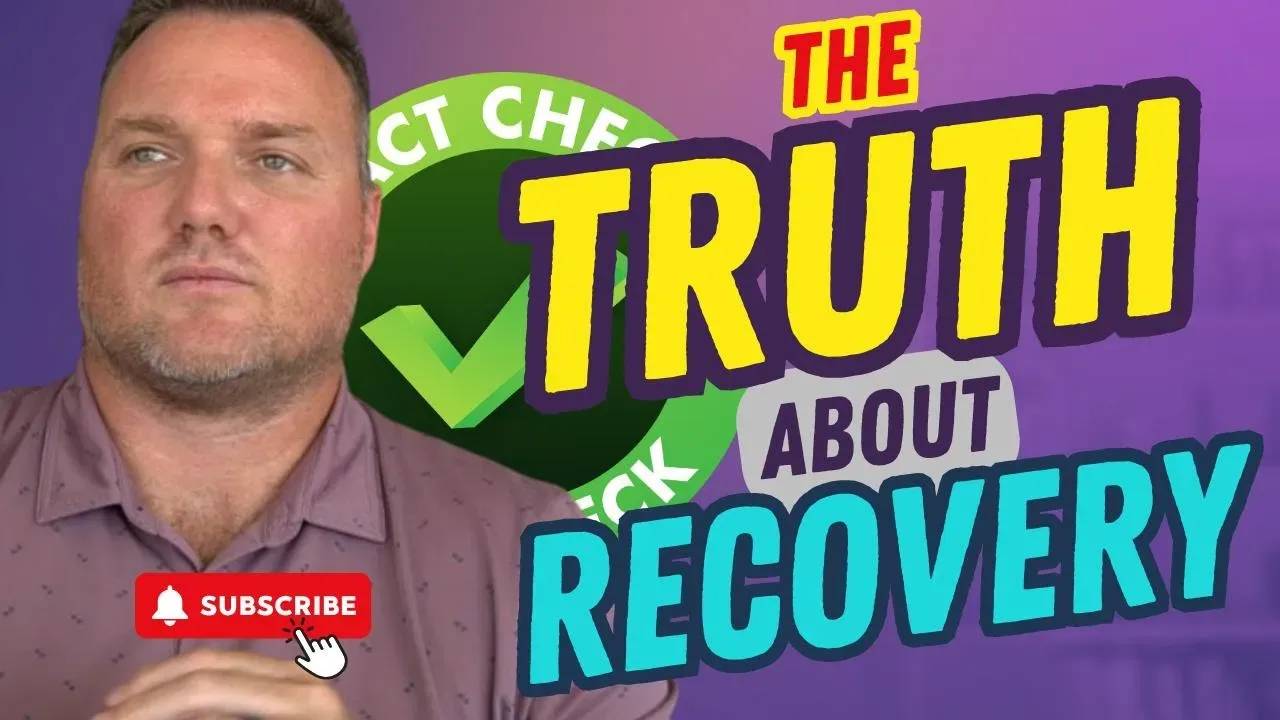The Truth About Recovery No One Talks About | Breaking Free from OCD, Anxiety & Stress
Sep 01, 2025
The Truth About OCD & Anxiety Recovery That No One Talks About – Insights from Matt Codde
When it comes to recovery from OCD and anxiety, there's a common belief that the process should follow a neat, linear path. But according to Matt Codde, licensed clinical social worker and founder of Restored Minds, the reality couldn't be more different.
In this post, we’ll break down Matt Codde’s core message from his popular episode, "The Truth About Recovery No One Talks About." Whether you’re struggling with OCD, anxiety, panic attacks, or supporting a loved one, these honest insights may help you navigate the recovery journey with more clarity and compassion.
OCD & Anxiety Recovery Is Messy – And That’s Normal
Matt Codde emphasizes that recovery isn’t a straight path. In his own words: “It's messy. It's not a straight path for anyone. It doesn’t look the same for anyone.” Every individual comes into recovery with different backgrounds, beliefs, emotional needs, and healing journeys. This diversity is what makes each person’s recovery unique — and sometimes, confusing.
Some people recover quickly. For others, the path is much longer. Some start and stop several times. Many try multiple approaches before something finally clicks. If you’ve felt frustrated or defeated, know that this non-linear process is completely normal.
Why Is Recovery from OCD and Anxiety So Messy?
According to Matt Codde, it’s messy because every human is different. We have different environments, upbringings, beliefs, and emotional needs. Although the basic tools and principles for healing stay the same, everyone learns, implements, and masters them at their own pace.
Some challenges people face on the journey include:
-
Pride or denial: Not wanting to ask for help.
-
Difficulty implementing tools: Struggling to put new skills into practice.
-
Misunderstanding recovery: Confusing symptom management with true recovery.
Matt Codde explains that real recovery means breaking the loop of fear and shifting into a higher state of consciousness — not just coping with symptoms, but fundamentally changing your relationship to fear and anxiety.
The Importance of Support and Guidance
“No matter what, we all need some aspect of support and guidance,” Matt says. Even listening to helpful podcasts or seeking resources is a form of external support. Partnering with people who have already been through the journey can consolidate your path — saving you time, frustration, and missteps.
Matt Codde recommends finding:
-
People who have achieved the outcome you want
-
Support where you feel trust and connection
-
Resources and tools from those with real experience
Recovery accelerates when you align yourself with those who can guide you with nuance and insight.
The Power of Embracing the Journey
The most powerful idea Matt shares is that “the journey itself is actually the very thing that creates the transformation.” It’s not just about reaching the end goal, but about who you become along the way.
The struggles—roadblocks, frustrations, days where you want to give up—all build resilience and facilitate real change. Recovery isn’t about climbing a mountain, Matt says; it’s about letting go of the burden you’ve been carrying. As you learn to do this, you transform into the person for whom recovery becomes possible.
Acceptance Brings Relief
Matt Codde relates recovery to the classic opening line from M. Scott Peck's book, The Road Less Traveled: “Life is difficult.” Once you accept this as a truth, the struggle to resist it disappears. The same applies to recovery—once you accept that it’s messy, the messiness loses its power to frustrate you. This mindset shift can take tremendous pressure off your journey.


